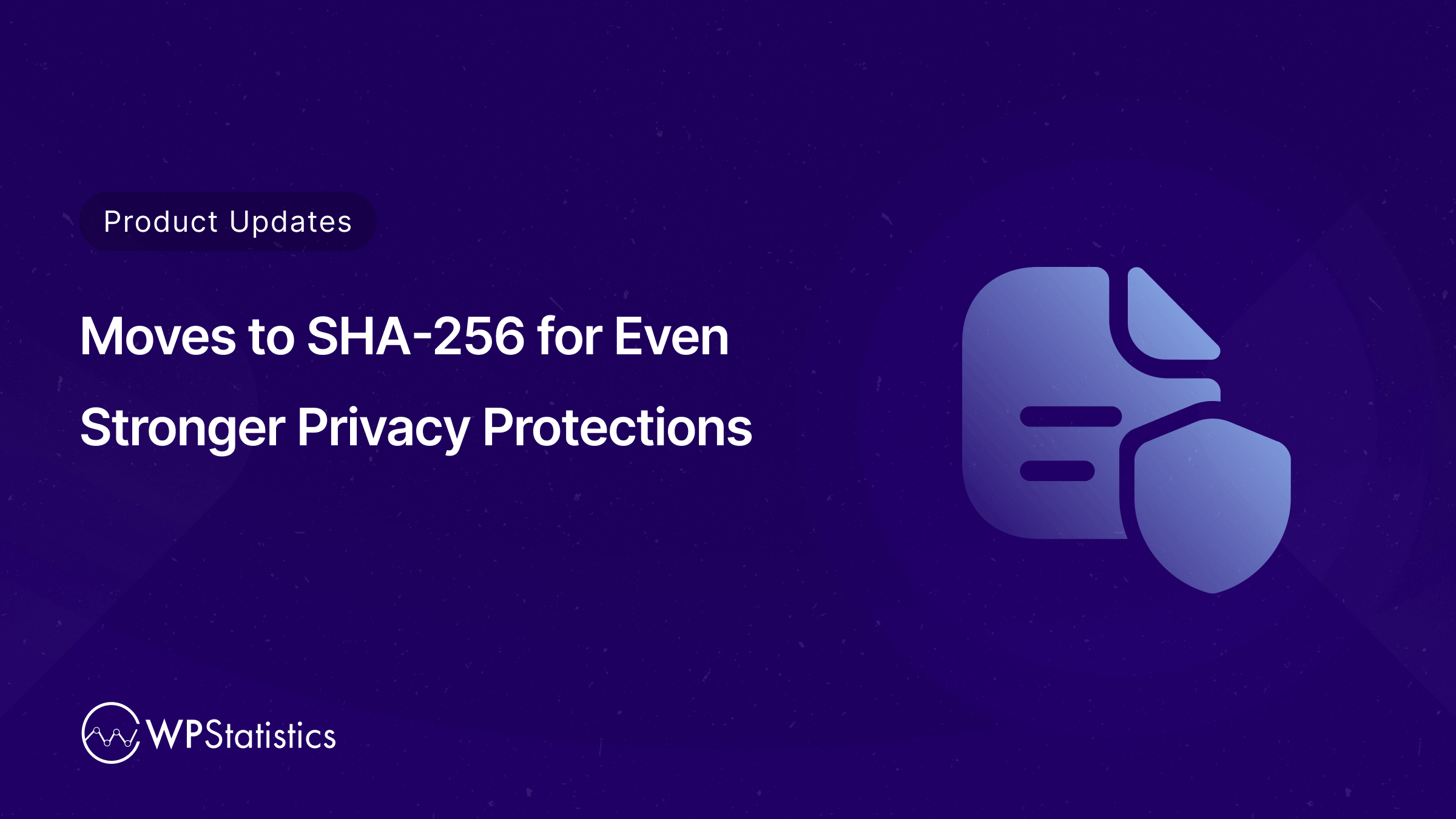At WP Statistics, we have always prioritized the privacy of your website visitors. Today, we’re excited to share an important update: starting from version 14.12.3, WP Statistics now uses the SHA-256 hashing algorithm, replacing our previous use of SHA-1. This change further strengthens our approach to data privacy, so you can be confident that your visitor information is protected to the highest standard.
Why This Change?
- Stronger Encryption: SHA-256 is more secure and future-proof than SHA-1, reducing the already low risk of reverse-engineering hashed data.
- Evolving Standards: As technology (and potential threats) advance, security best practices evolve. By switching to SHA-256, we’re aligning with modern cryptographic recommendations.
Privacy is Our Top Priority
Our team is committed to making WP Statistics the most privacy-focused analytics plugin for WordPress. From anonymizing IP addresses by default to rotating salts daily, we are always seeking new ways to prevent personal data from being traced back to individual visitors. And all privacy features in WP Statistics are free, with no plans to charge for them—ever. We believe that privacy shouldn’t come with a price tag.
How We’re Improving
- Daily Salts
Every day, we generate a new salt to ensure hashed data can’t be easily matched from day to day. - IP Anonymization
We mask the last segment of your visitors’ IP addresses so exact IPs are never stored. - SHA-256 Hashing
In version 14.12.3 and onward, we now hash data with SHA-256 for even stronger protection. - Truncation to 40 Characters
We store only the first 40 characters of the SHA-256 hash, ensuring minimal data is kept in your database while maintaining security.
Learn More
If you’re curious about the technical details behind these changes, we’ve created a thorough document explaining salts, hashes, and how WP Statistics processes IP addresses. It covers:
- Our anonymization process
- How salts and hashes work
- Why we chose SHA-256
- What this change means for your analytics data
- Limitations and considerations of our privacy-focused approach



